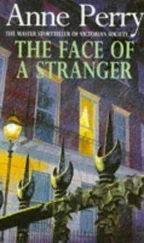Jane had said it would begin without much warning, but that he would see it coming if he looked. “There will be people you haven’t seen before,” she had said. “They don’t like to burn a surveillance specialist by having him scoop up the likes of you on television. There won’t be guns in sight, because they know you’re not dangerous. You have to see the signs, and then you have to move before they’re ready.”
Carey had thought about all of the ways and the times when this might happen, but somehow he had not imagined it would happen at the hospital. That was absurd, he realized. He spent ten or twelve hours a day in this building or in his office down the street. He had assumed that they would not want to arrest him in public, but why wouldn’t they?
He spent a moment gathering his thoughts and then started off down the hallway. He slipped into the staircase to avoid the elevator, then went down two floors to the cafeteria. He saw Leo Bortoni and Sal Feinman sitting at a table together, but when Leo looked up and waved him over, he pretended not to see. He walked past the piles of cafeteria trays beside the hot table and stepped into the wake of a young man pushing a tall rack of dishes through the swinging doors into the kitchen.
He followed the rack through the food-preparation area. He had not been in the kitchen since he had taken a tour when he had accepted his appointment to the hospital staff. He had a vague memory that dishes were washed farther back somewhere, and that it was done by a big stainless steel machine with a conveyor belt that raised the water temperature above the level that any of the common microbes could survive. He heard lots of rattling dishes and water running on both sides, but he didn’t dare look.
“Carey!”
He turned and saw Lana McLiesh wearing her white lab coat and a hairnet over her blond hair, carrying the clipboard she always seemed to have. “Hi,” he said. “I was looking for you.”
She pulled him aside and handed him a paper cap from her pocket. “Put this on. You’re not supposed to be back here, you know.”
“Sorry,” he said. “I was on my way out, when it occurred to me that I didn’t order for my morning surgeries.”
She squinted at her clipboard and flipped a couple of pages. “Miller, Reardon, Schwartz, right?”
“Oh, that’s right,” he said. “I think I signed it yesterday. Joy must have put the order in. How have you been?”
“Terrific,” she said. “My cooking agrees with me. How about you?”
“Same here.” He looked around him, pretending to be disoriented. He pointed. “I can get out that way, can’t I?”
She looked a little uncertain. “You can, but that’s the way the garbage goes out. You might want to—”
“No, it’s fine,” he said. He leaned closer. “There seem to be a lot of reporters around today, and I’m not really in the mood to answer questions about Richard Dahlman.”
She winked. “Gotcha. Just watch your step. The floor back there is perpetually wet.”
He stepped out onto the loading dock in the back of the hospital and resisted the temptation to jump to the driveway below. From here he could see his office building, so he turned to look. In the parking lot behind the building he could see the roof of a police car with the bar of emergency lights across the front. He supposed that if he had needed confirmation, that would have been it. He walked down the steps.
Jane had made a foolproof plan for him, but he had no idea how he could get from the place where he now was to the place where the first steps of the plan began, at Jake Reinert’s house.
He heard his pager go bee-beep, bee-beep, bee-beep . He reached to his belt and held it up to confirm his suspicion that it was the central desk trying to locate him for the police. But the number on the display was the emergency-room number. He heard a siren in the distance. It was an ambulance, and a moment later it pulled into the driveway and up to the emergency room.
Carey turned off his beeper and began to walk quickly toward the street. He would duck into a restaurant a few blocks from here, call Jake Reinert, and ask Jake to pick him up. Even if they really needed an extra surgeon in the emergency room, he had seen Leo in the cafeteria, and Leo was a capable surgeon.
Carey was almost to the street when he heard the second siren. He slowed his pace a little and listened. The siren cut off, but he heard the engine roar as it went up the drive. They never did that unless it was urgent and somebody had only a few minutes left. They usually slowed down at the entrance to the driveway. He stopped. He could hear other sirens now: two more, or was it three? Something terrible must have happened.
He held himself as though he were balancing on a thin wire. His mind filled with Jane’s image. He had been so close to her, but now he could feel her slipping away. With her went all hope, all possibilities. He had been foolish to imagine that he could go off with her. He had been like a big, clumsy plow horse trying to jump the fence so he could run with the deer.
Carey pivoted on his heel and ran up the lawn of the hospital. He reached the driveway just as Leo Bortoni came out on the loading dock, craning his neck to look for him.
“Carey!” he yelled, and beckoned.
Carey climbed the steps three at a time, and hurried through the kitchen beside him. “What is it?”
“Don’t know much yet. Some kind of explosion at a factory. Lots of third-degrees, probably, and a lot of flying metal.”
As Carey hurried across the polished floor of the cafeteria, he could see that Pankowski, the hospital administrator, was in the hallway saying something to two uniformed policemen. He turned his head as Carey and Bortoni reached the doorway. The two policemen brushed past Pankowski.
One of them came close to Carey’s shoulder, but did not touch him. “Dr. McKinnon?”
“Yes?”
“As soon as you’re out of surgery, we’d like to talk to you.”
“Oh?” said Carey. He glanced at the officer’s face. It was the face of a decent man, who was willing to gamble that his job didn’t require stopping a surgeon from saving somebody’s life. He was asking for a promise; if Carey didn’t make it, he would have to follow the order he had been given to arrest him now. Carey hesitated, then made the promise. “I won’t be going anywhere.”
The next night, Jane stepped to the newsstand on State Street, opened the Los Angeles Times and looked at the headlines, then moved her eyes down the page. Dahlman was not mentioned in the news anymore. She put the paper back in the pile and went to the set of cubbyholes by the wall where the out-of-state papers were sold. The newsstand didn’t carry the Buffalo News , but she saw the Chicago Tribune . She picked one up, opened it, and saw the article at the bottom of the front page. DOCTOR SUSPECTED IN DAHLMAN ESCAPE. She calmly folded the paper, walked to the little counter under the green awning, and handed it to the man with the unlit cigar in his mouth. She gave him a dollar and turned to walk up the street to her car. The newspaper in her hand was an object that felt both fragile and dangerous, like a firebomb or a poisonous snake.
She sat behind the steering wheel and opened it again, feeling her heartbeat at the sides of her head. Her eyes swooped to the article, clutching phrases because she was too impatient to follow sentences: “taken into custody,” “questioned by the F.B.I.,” “could be charged.” She read that twice. If he could be charged, then he had not been charged. That gave her the momentum to relinquish the first page and move to the second. Charged with what? “Accessory to murder.” Her mind protested: Not a chance … not yet, anyway. But she saw it was just the culmination of a list. “Aiding and abetting an escaping felon, obstruction of justice, making false statements in a police report.”
Читать дальше












